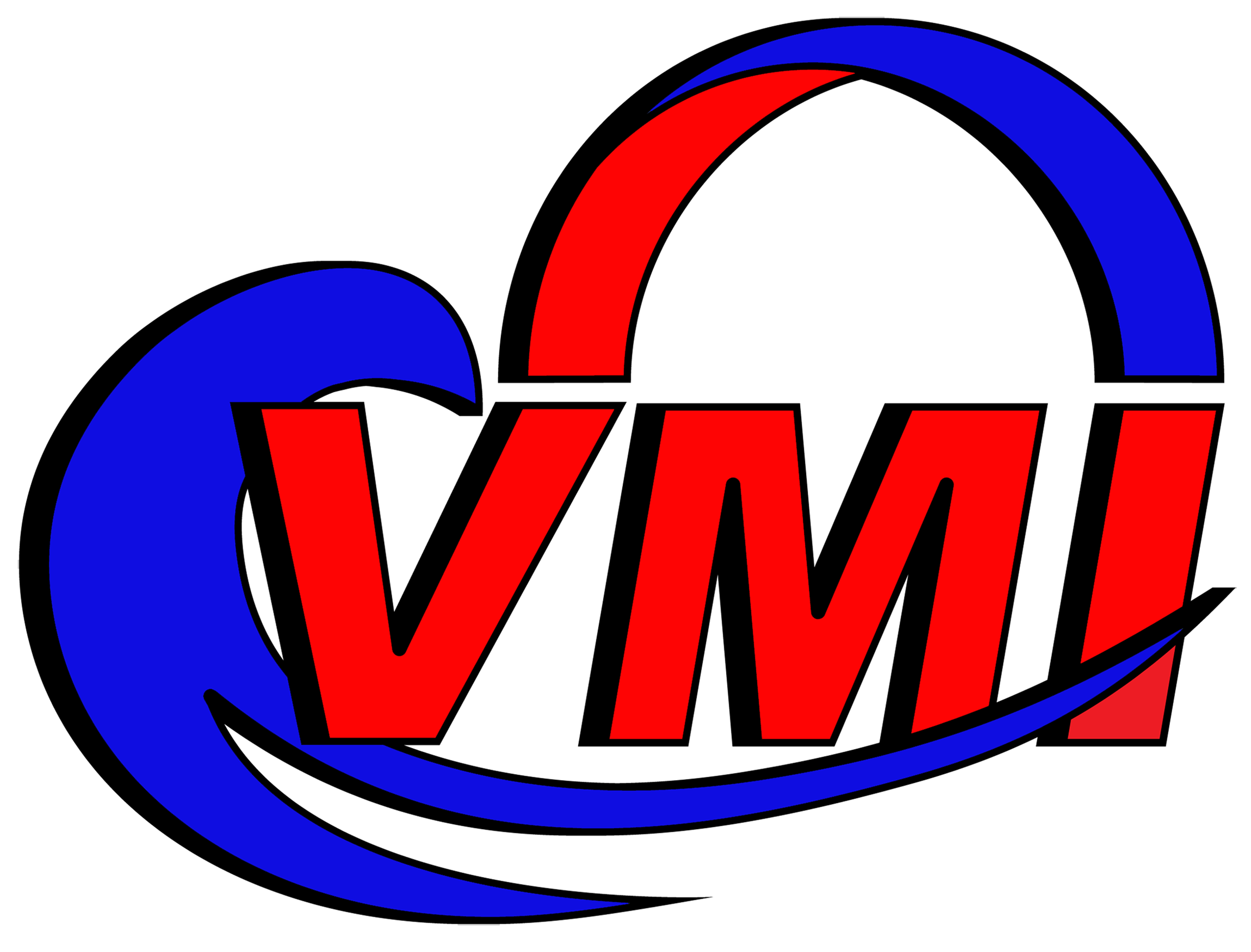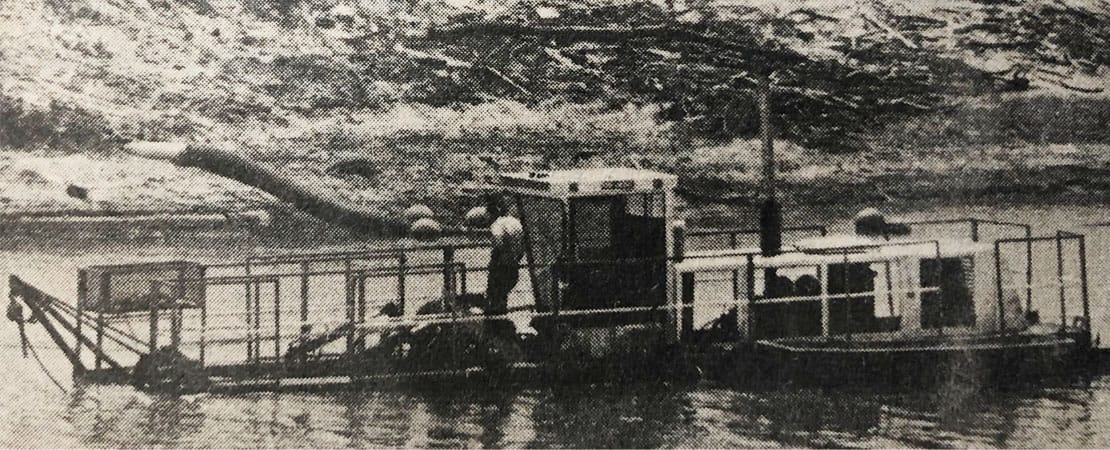Bethany Firm Started by Maitlen Family with $8000 Deal
In 1972, Gene Maitlen was president of Oklahoma City Tractor Co. when a young man asked if he would assemble a dredging machine for him. Maitlen asked: "What is a dredge?" Since then, Maitlen has learned a lot about dredges. As a result, dredging equipment assembled at VMI, Inc. of Bethany is known worldwide.
VMI dredges and injection plows are used in places as far away as Tahiti, Pakistan, Colombia, California and New York, as well as nearby places like Dallas and Clinton, Okla. The dredges are used to bring solid material, such as debris, sewage or sand, up from under water by dairy farms, exclusive Tahatian resorts, a coal mine in West Virginia, the Erie Canal and a ditch in Africa.
Maitlen is president of VMI, Inc., which was started in 1977 after about $300,000 in research and development. VMI, Inc. manufactures and assembles about six dredges and sludge injection plows a year, with annual gross sales of about $1 million.
All that was started, because that young man's deal in 1972 "sounded pretty good," said Maitlen. The tractor firm was going to be paid $8,000, and the "young man" was going to sell it for $16,000 to the city of St. Louis, MO.
The oldest son, Randy Maitlen, secretary treasurer of VMI, was working in the welding shop of the tractor company at the time. A younger son, Tony Maitlen (who joined the company a year later), was still in school.
Randy Maitlen and one other tractor company employee were given the job of assembling the dredge. "It didn't work," said Randy Maitlen simply. When the machine was turned on, it went straight up in the air. The suction and balance caused the toe-end to go under water, slapping the back of the dredge straight up. Workers were sent scrambling for safety. "They finally got the pump turned off," said Gene Maitlen. "Then they sent it back."
After 30 years in the equipment business, Gene Maitlen said he just "couldn't resist the challenge" of letting the dredge get the best of him.
"Randy liked steel and engineering," said Gene Maitlen. Both were beginning to see a market for small dredging machines that could be used by cities, governments and private industry. "We started out with about $100,000 of our money and borrowed money," said Gene Maitlen.
While developing the dredge, Randy Maitlen began working on an improved cutter-head, because competitors held the patents on those then in existence. This is the part of the machine that goes under water, churns the debris or other materials and sucks it up. (The cutter-head looks a bit like an oversized vacuum sweeper head except where the bristles would be are large shark shaped steel teeth.)
The VMI patented device churns the debris into the suction area. The mouth of the suction area ranges from 5 feet to 10 feet wide, depending on the size ordered and the type of work expected of the machine. "We get higher percentage of the solids than our competitors," said Gene Maitlen.
The company also manufactures a sludge injection plow that tills the waste into sites approved by the Environmental Protection Agency. This machine buries the waste and covers the area with soil at the same time. There is little or no odor after the process is completed, said Maitlen. The combination allows VMI to offer a complete package of dredging and disposal equipment. Before VMI, there was only one company making the injection plows, said Gene Maitlen.
When fully assembled, the VMI dredges will float in as little as two feet of water and clean an area to a depth of 15 feet. Larger VMI dredges need three feet of water and clean to a depth of 30 feet. "Our machines are in between the really big machines and the guy who stands on the shore and reaches out with a boom, said Gene Maitlen, "A ship can come right in behind one of our machines."
In 1977, the fledgling company proved its worth with its first job. Olen Chemcial Co. of Louisiana had been given a short time to clean an area by the Environmental Protection Agency (EPA). "The acid was so high the birds couldn't land," said Gene Maitlen. "EPA was going to fine them $10,000 per day if it were not neutralized by July 1." "We took lime from a pit and had it neutralized in three days."
Although the first job is one of the more memorable, Tony Maitlen prefers working for the Bali-Hai Hotels in Tahiti. The dredging equipment was purchased by the owners to restore the beach fronts of the four hotels after storms. During the hurricane season the waves wash the sand back into the ocean. "They have the only dredging machine in the South Pacific," Randy Maitlen said. The hotel owners, including three Americans and one Frenchman, now rent the dredge to other companies.
It is not only the hotel owners that are profiting from the equipment. The San Joaquin Valley of California has approximately 4,000 dairy farms in a 200 mile radius. The waste from cattle is washed into sump tanks. "After eight or ten year," said Tony Maitlen, "the sump tanks full up."
Richard Lolmaugh, owner of Agri-Till with offices in California, purchased one of the VMI dredges for $106,000. He has reported revenues from cleaning the dairy sumps and fertilizer sales of $2,500 a day. "We can't believe all the needs for these machines," said Gene Maitlen. "We've even had calls from Alaska about using them to look for gold, and yesterday there was a call from Singapore."






